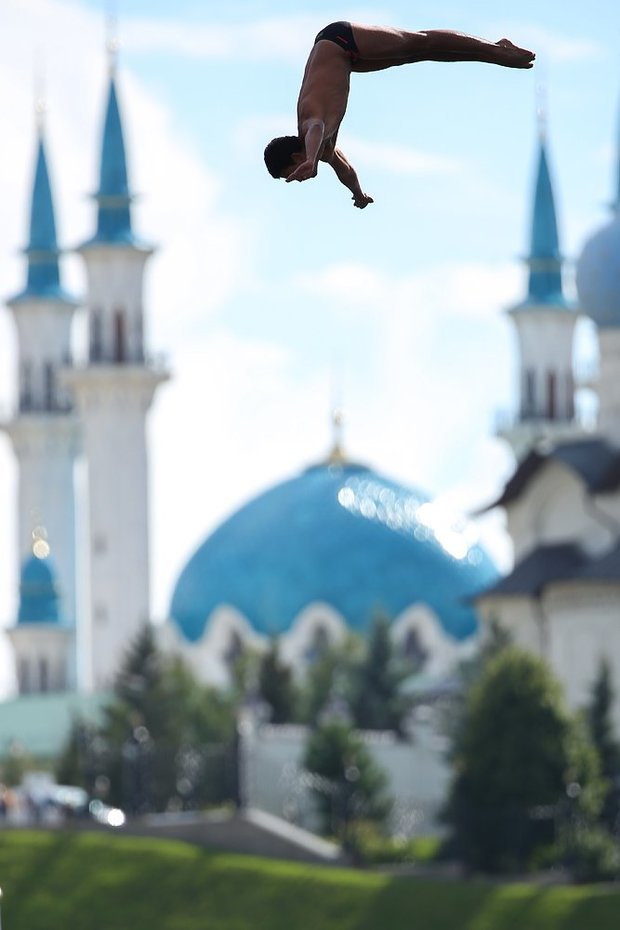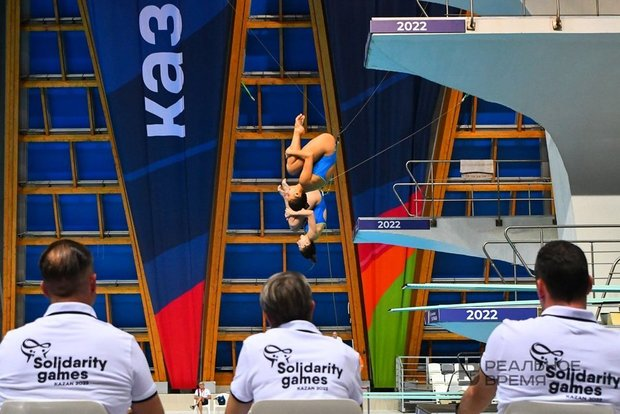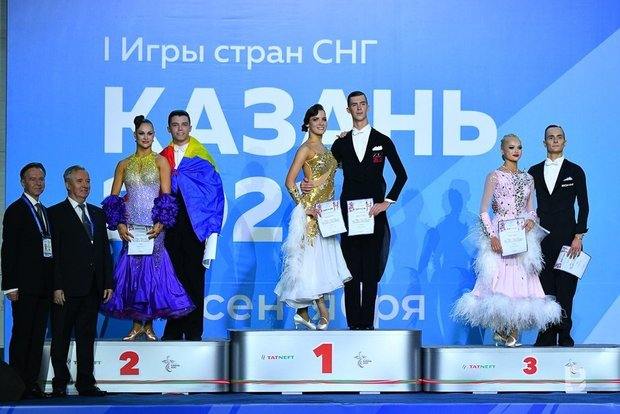Ranko Tepavčević: ‘Nobody wants to lose such a partner as Kazan’
The vice director of the Directorate for Sports and Social Projects about past and present challenges of Tatarstan sport
Losing the right to host international competitions, Russia and Tatarstan managed to offer an alternative in the form of the Solidarity Games. Alienating from Western elites, our country is now trying to revive the Soviet practice of training of Asian, African, Latin American elites, which are tolerant to our country. Vice Director General of the Directorate for Sports and Social Projects Ranko Tepavčević who already experienced international boycott and isolation with his native Yugoslavia 30 years ago talked about this and not only in his speech.
Vice Director General of the Directorate for Sports and Social Projects Ranko Tepavčević arrived in Kazan in 2011 and did not have a smattering of Russian. But he had the experience of working as mayor of the 2009 University Games Village in Belgrade, which was so necessary during the period when Kazan was only going to join the number of the world’s sports capitals. He delivered a stellar report at an international conference Topical Issues of the Role of Sport in Building Civil Society and Popular Diplomacy in early May. Besides diving back into the 2013 University Games in Kazan, the conference gave the audience an understanding of the activity of the directorate that is now actively helping Russia to undermine international isolation. Realnoe Vremya publishes key takeaways from his speech.

“The football team of Yugoslavia was literally taken off the plane”
“My native Yugoslavia was banned from international sport from 1992 to 1996, didn’t participate in the Olympics in Barcelona and was literally taken off the plane during the 1992 UEFA Euro and Denmark that replaced it became the champion. But I would like to talk about those decisions Kazan is ready to make, not about this. For instance, our Directorate of Sports is a unique legacy of the 2013 Universiade because it is the only organisation in the world that continued existing after the end of the event. This year, we are celebrating the 10th jubilee, and over this time, we have hosted about 150 big championships. We have collected the best world experience in our work and covered a long road that started as early as 2011 when, in fact, the directorate didn’t exist as an organisation. We applied for hosting the FINA World Championship, and our president of the aquatic stadium during then FINA President Julio Maglione’s first visit took place at an open field, in the place where Ak Bars Arena is now located, but at that moment there was just one tent there. And we demonstrated that the stadium itself would be here in the future and the swimming pool would be inside in 3D on a screen. Delegation members looked everything over and concluded:
“Fine, go ahead!” As a result of what we had in our heads at that moment was fulfilled after the end of the Universiade and we hosted an amazing FINA World Championship in 2015, and 12 world records were set in this swimming pool. It is history now. In the future, when we intended to host the FIFA World Cup, FIFA delegation members noticed that if we had hosted the FINA World Championship, perhaps, there wouldn’t be any issues about football for us.
“If competitions can be taken away, the opportunity to get an education is hard to take away”
But these questions soon arose among us because the first alarm went off in 2016 regarding the Junior World Athletic Championship. We had an inspection visit from the IAAF, the international athletic federation, earlier when we had a great meeting when one of the inspectors’ phone rang. After that, they stood up, left and didn’t come back (as a result, Polish Bydgoszcz hosted the World Championship, which was symbolic because another Polish city Poznan had lost to Kazan when choosing the host of the 2013 Universiade). And now we live in the world where not sport is on the agenda, the agenda is different but we are actively working to solve problems that are coming about. We have already concluded that any event is unique, it can always be taken away, cancelled or postponed. We scheduled to host 22 world and European championships last year. However, we work with our partners, the other side doesn’t want to lose such a partner as Kazan either, we are talking about mainly the postponement of scheduled events.
Thanks them for this, also, thanks because together with our colleagues in international federations we made a decision that not even the fact of holding events is key but development programmes it is necessary to invest in, because the youth are the future of the world. And in 2018, we launched a project with FINA — it is an international aquatic sports development centre including swimming, diving and synchronised swimming in the future. Scholarship recipients from all over the world representing Asian, African, Latin American countries where these sports weren’t very developed have taken our training programme. They have received all services allowing them to prepare for big international championships, Olympics. It is accommodation, meals, medical and visa support. In reply, they expanded the cooperation, gave masterclasses in different districts of the republic. Since 2019 when the project itself started 45 athletes from 36 countries of whom 29 are swimmers and 16 are divers have trained here. In fact, these athletes are unofficial ambassadors who returned to their countries, explained what Tatarstan was like.
The Volga sports university was involved in our project with FINA because the athletes studied Russian, got an opportunity to pursue a specialised bachelor or master’s degree, and this was our another joint project Champions Academy. If competitions can be taken away, the opportunity to get an education is hard to take away. And now this seems to be a foothold that is impossible to break. Now we have the Solidarity Centre that is an educational scholarship programme implemented together with Russia’s federal cultural agency. The best athletes of their countries who are leaders who can chair sports ministries, federations after retiring from sport will come here. They got a degree in Russia, speak Russian, involved in the local culture and mentality. I am myself evidence that I didn’t speak a word in Russia when I first came to Kazan (Editor’s note: we will note that Ranko is now successfully trying to master Tatar he welcomed the audience in).

“Losing the right to host international competitions, we offered an alternative last year, Solidarity Games”
Also, thanks to the existence of this development centre, we have managed to establish relations with countries and federations whose athletes came here and we still keep our relationships, which shows the trust we have deserved. At the moment our partners from FINA have scrapped this project, about 30 athletes were in Russia when this happened, nobody wanted to leave Kazan, they wrote letters asking to stay understanding that they were cared at such a high level that our foreign colleagues received such a service as, let’s say, Kliment Kolesnikov or Yevgenia Chikunova.
Losing the right to host international competitions, we offered an alternative last year, Solidarity Games, dividing them in three stages: World, Sport, Legends. So besides our friends from Belarus who participated almost in every stage of our Solidarity Games together with their stars Ilya Shimanovich, Anastasia Shkurdai, they competed here. We clearly showed at the first stage World that one could come here to compete and nobody would be sanctioned because our participants then competed both at the European Championship and the FINA World Championships. Though there were nuances here too, then they felt some pressure when there was an attempt of lowering scores of the participants in our competitions in international competitions, but this is the reality. The last stage of our competition bore the name of Legends, and this is true because diver Dmitry Sautin, synchronised swimmer Svetlana Romashina are legends in their disciplines who not only gave their names to these competitions but also offered masterclasses with local young athletes.
I deeply respect the Games of CIS Countries that were hosted in Kazan for the first time in history in 2021 but we try to keep the practice of holding of the Solidarity Games because it allows expanding the geographical footprint of competitors, not limiting it only to CIS, SCO, BRICS countries and other international organisations.

This year we intend to continue our international practice, an international fencing competition was held, Yevgenia Chikunova set a world record at the Open Russian Swimming Championship that hasn’t yet been approved by the international federation. But we are demonstrating that Kazan water is the faster, Kazan conditions are the most suitable, the Kazan university is the best and we live in the republic that doesn’t have the word back. There is only ahead. Every crisis is a new chance, every situation in which we are encroached on is an opportunity, this is why it is necessary to think about the prospects in the future building relationships with the countries that respect us and what we do for them. And nobody will be able to break this.”
Reference
The author’s opinion does not necessarily coincide with the position of Realnoe Vremya’s editorial board.